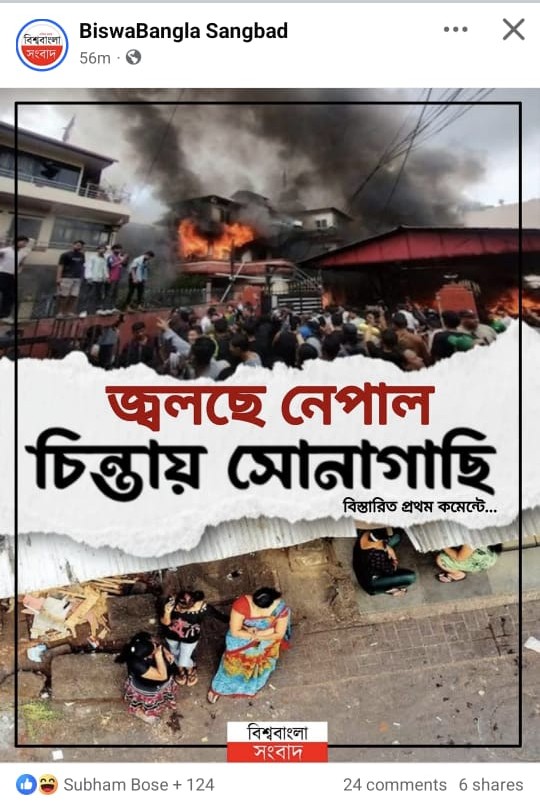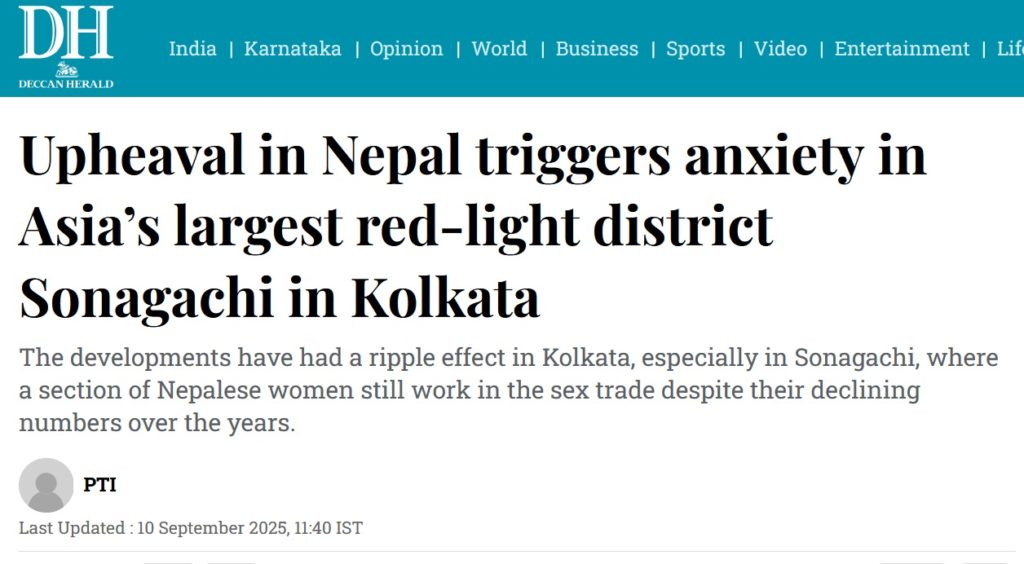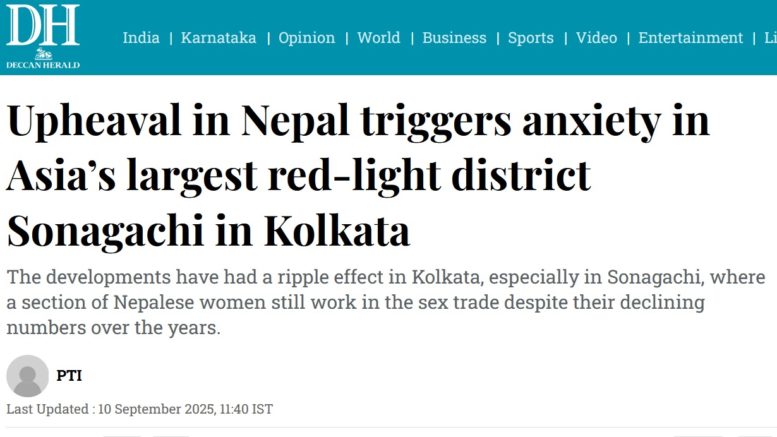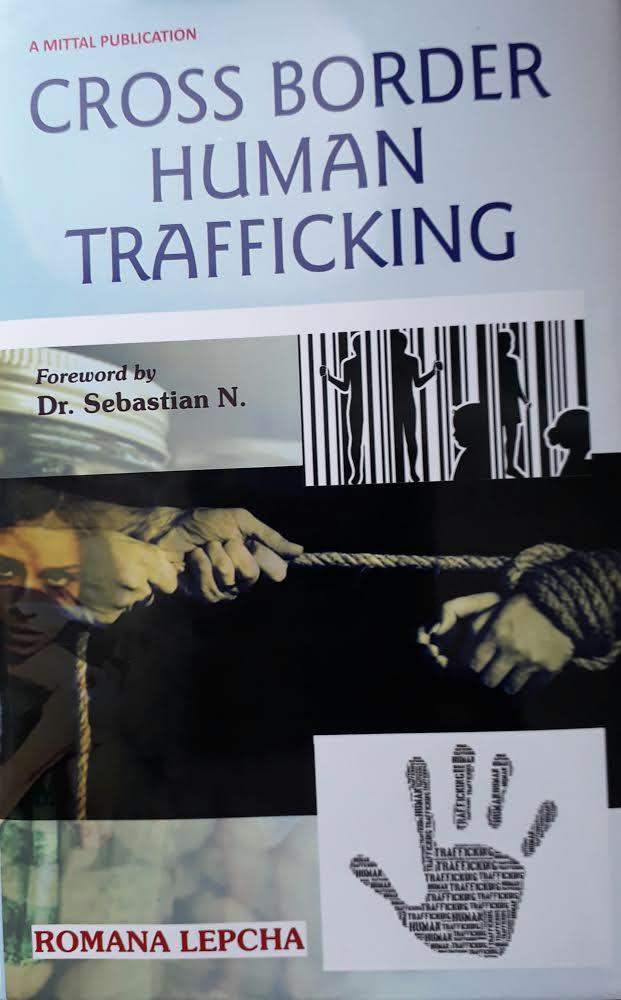Press Trust of India, a non-profit cooperative that caters to some of the largest publications in South Asia, has done a great disservice to their readers, especially the people of Nepal. Their recent article on the ongoing upheaval in Nepal is nothing, other than a glaring example of racism that reduces a profound political crisis unfolding in an ancient nation, to a sordid sideshow in Kolkata’s Sonagachi red-light district.
Titled “Upheaval in Nepal triggers anxiety in Asia’s largest red-light district Sonagachi in Kolkata,” PTI takes a sensationalist approach. This article does nothing other than perpetuating harmful stereotypes about Nepalese women.
In a moment when Nepal is experiencing such a massive revolution, PTI’s focus is disturbingly narrow.
Instead of addressing the political chaos and its long term impact on Nepal, or hardships faced by Nepalese students in India, or how it could impact Indo-Nepal relations, or thousands of other lenses, the article fixates on Sonagachi. Thus boiling down the ripple effects of a nationwide upheaval and confining it to the anxieties of sex workers in Kolkata.
The framing is not just lazy journalism; it is voyeurism exemplified. The article exploits the pains of exploited Nepalese women for cheap sensationalism.

Why, in a country of over 50 lakh Nepalese migrant workers, does PTI choose to focus on the sex work sector alone as the barometer of Nepal’s crisis? Why ignore the far more important impacts of Nepal’s political instability – like the impact on remittances? or the geopolitical tensions at the India-Nepal border etc?
By choosing to highlight Sonagachi, PTI implicitly reinforces and helps perpetuate an archaic and demeaning view of the Nepalese women in India.
This is nothing but racism and arrogance.
We didn’t see any such articles written about Bangladesh sex-workers in Sonagachi, when Bangladesh underwent a similar revolution a year ago.
Moreover, this article dehumanizes women, as it fails to address the structural exploitation that enables trafficking of women into Kolkata from across South-Asia. It fails to question the “system” that allows such a “red-light area” to exist in the first place. It fails to speak out against all the social evils surrounding force prostitution. Instead it sensationalizes a significant historical event, and relegates it to mockery.
PTI owes an apology to Nepal, its people, and the broader South Asian community for reducing a historic political movement to a salacious sideshow. This is not journalism, it’s harmful, demeaning, and serves only to perpetuate stereotypes.
Journalism deserves better.







Be the first to comment on "PRESS TRUST OF INDIA – Shameful Racist Take on Crisis in Nepal"